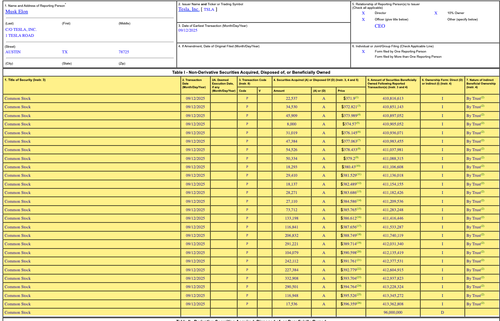Anniversary of the announcement of independency of the Kingdom of Poland by the Agency Council.
Today in our calendar we will look at events from 1917 to 1918 that led the Polish Crown to independence.
The oath crisis of Józef Piłsudski in July 1917, who refused to accept the oath of allegiance to the Polish Crown, accelerated the timetable of the Polish Legions. The Austrians liquidated most of the troops whose soldiers were locked up in internment camps. Only the 2nd Brigade under Joseph Haller took the oath. She was transferred to German command and sent to the front.
The political crisis around the oath caused the Provisional Council of State to resolve in August 1917, which transferred its powers to the Interim Committee of the Provisional Council of State (KPTRS). On 12 September, a fresh body was established under the orders of the business authorities – Regency Council.
The Regency Council was the highest executive authority in the state until the Polish king took the throne. It consisted of Zdzisław Lubomirski, Józef Ostrowski and Archbishop and Primate of the Kingdom of Poland, Alexander Kakowski. The Regents appointed the government with Jan Kucharzewski at the head, who took over the administration, judiciary and education at the hands of the KPTRS.
Despite the limited powers of the occupiers, the Regency Council and its government rapidly built the foundations of the functioning of the Kingdom of Poland. Within a fewer months, the most needed government was written, regulating key areas of social and economical life. They became the foundation of the existence of a future independent state, so that it did not gotta start functioning with a complete legal vacuum.
In February 1918 a fresh crisis broke out in the Kingdom of Poland, this time connected with events around the German – Bolshevik area in Brest. The Polish side was not allowed to negotiate, and in a separate treaty, the parties recognized the independency proclaimed by the Ukrainian People's Republic in January with the capital in Kiev.
As if there were little, the Germans handed Chełmszow to the Ukrainians, and the Austrians pledged to make Ukrainian autonomy in east Galicia. In the secret additional protocol, the Bolsheviks promised that they would not let any fresh Polish troops to form in Russia.
The brothers Marian and Józef Lutosławski gave information about the anti-Polish agreement. They managed to gain the content of the act in Moscow, guaranteeing the subjection of the Kingdom of Poland to Germany and assuming a possible cooperation of powers, in the event of an effort at real independence. As you can see, even in a war situation, the invaders were able to agree on a common anti-Polish policy.
Supporting free Ukraine and later Lithuania, was aimed primarily at territorial restrictions on future Poland, which was the only 1 with the possible to harm Berlin's interests, as well as Moscow.
Due to the publication of scandalous agreements, strikes, rallies, mass resignations from administration, desertions from the army and the show return of German and Austrian orders by veterans took place in the Kingdom of Poland. As part of the protest, Haller's 2nd brigade of legions (the alleged Polish Meal Corps), broke through the Austrian front at Rarancza and merged with the Russian troops of II Polish Corps.
Against about 7,000 Polish groups, The Germans sent overwhelming forces. After the full day's conflict of Canown and advanced losses of their own, they led to the laying down of weapons by Poles who ran out of ammunition. General Haller and a crucial part of his soldiers, they made their way through Murmansk to France, where they then participated in the creation of the blue army.
Unfortunately, the heroic Lutosławski brothers, who contributed to the detection of the German – Bolshevik contract, were shot by the communists on September 5, 1918.
Meanwhile, in the Kingdom, it was boiling. The Kucharzewski government resigned. The same was planned by the Regency Council, but it yet limited itself to a sharp protest against the Peace of Brest and the declaration that from now on it will only obey the Polish people, not the invaders. The fresh government of Jan Kantego Steczkowski was established, and in October the cabinet of Józef Świeżyński, in which the position of Minister of Military Affairs, due to the prestige of the hero of the fight for Poland, was intended for Józef Piłsudski, who was imprisoned in Magdeburg.
Despite commitment and dedication and support from conservative environments, The Regency Council did not gain the favour of the majority of the population, and its prestige throughout its life was comparatively low. An average Kingdom resident associated her with the business authorities and considered her to be a full dependent body from Berlin and Vienna.
It is besides worth noting that Polish society has been massively indoctrinated by democratic and socialist ideology. Therefore, the support for raising the Polish crown and economical freedom was limited. In addition, the example of 2 Saxons, Stanisław August and the Russian Tsars on the Polish throne was not encouraging. The monarchy thought was further challenged by the current anti-Polish actions of German and Austro-Hungarian monarchs.
In early October 1918, central states decided to have peace talks, for which the stance was assumed by president Wilson's 14 points. utilizing this, as well as the clearly approaching interior disaster of Berlin and Vienna, the Regency Council declared Poland independence, by a peculiar legal act dated 7 October 1918.
In addition to the slogan “Unified Poland”, this paper announces the creation of a coalition national government and the forthcoming free elections to parliament. The Council besides undertook to delegate its power to a democratically elected representation which was to decide on the future state regime.
Sanacja lied to past and set the festival of regaining independency on 11 November, the date of the transfer of power by the Pilsudski Council. Later authorities maintained a state vacation under this false date. It seems that the fact that Poland was reborn after the partitions as a monarchy was peculiarly unpopular.
Previous entry from our calendar is available Here.


















